Banned Books Collection
Explore the complete collection of books that have been banned, challenged, or censored throughout history. Each represents a story that someone, somewhere, didn't want you to read.
Based on the comprehensive Wikipedia list of books banned by governments

All Boys Aren't Blue by George M. Johnson
Published: 2020
Banned for: LGBTQ+ memoir, sexual content, discussions of queer Black identity | Banned in: Challenged/banned in 14+ US states including Texas, Florida, Tennessee
This powerful memoir about growing up Black and queer in America has been targeted by Republican lawmakers in at least 14 states. Johnson's honest discussion of sexuality, identity, and intersectionality has made it a lightning rod in current culture wars. The book's frank exploration of what it means to be both Black and queer challenges readers to understand multiple forms of marginalization simultaneously.

Gender Queer by Maia Kobabe
Published: 2019
Banned for: Non-binary gender identity, sexual content, graphic memoir format | Banned in: Most banned book in America, challenged in 40+ states
The #1 most banned book in America 2022-2024. This graphic memoir explores gender identity and what it means to be non-binary and asexual. Kobabe's honest depiction of gender dysphoria, sexual awakening, and the search for identity has made it the center of Republican-led censorship battles nationwide. The book's visual format and frank discussions of anatomy have particularly triggered conservative opposition.

Call Me by Your Name by André Aciman
Published: 2007
Banned for: Gay romance, sexual content, age gap relationship | Banned in: Removed from Hillsborough County, Florida; challenged nationwide
This acclaimed novel about a summer romance between two young men has been removed from Hillsborough County, Florida, and other districts over 'pornographic' content and LGBTQ+ themes. The book's lyrical exploration of first love and sexual awakening in a same-sex relationship has made it a target for Republican school boards implementing anti-LGBTQ+ policies.

And Tango Makes Three by Justin Richardson & Peter Parnell
Published: 2005
Banned for: Same-sex penguin parents, LGBTQ+ themes in children's literature | Banned in: Previously banned in Florida; restored after lawsuit; challenged nationwide
Based on a true story of two male penguins who hatched and raised a chick together at Central Park Zoo. This innocent children's book has been restored in Florida after a lawsuit but was previously removed under Governor DeSantis-era guidelines. The book's simple message about different types of families has made it a target for those opposing LGBTQ+ representation in schools.

Heather Has Two Mommies by Lesléa Newman
Published: 1989
Banned for: Lesbian parents, LGBTQ+ family representation | Banned in: Challenged in Pennsylvania and multiple US school districts
A groundbreaking children's book about a girl with two mothers, challenged in Pennsylvania districts for referencing gender identity and non-traditional families. Originally published in 1989, it remains controversial today as Republican-led school boards attempt to remove LGBTQ+ representation from children's literature.

The Perks of Being a Wallflower by Stephen Chbosky
Published: 1999
Banned for: Sexual content, homosexuality, drug use, mental health themes | Banned in: Banned 85 times in 2024; widespread US challenges
Reported banned 85 times in 2024 alone, this coming-of-age novel about a sensitive teenager has become a major target for Republican parents and school boards. Its honest portrayal of teen sexuality, homosexuality, drug use, and mental health issues challenges conservative views of what teenagers should read about their own experiences.

Thirteen Reasons Why by Jay Asher
Published: 2007
Banned for: Suicide themes, potential to inspire copycat behavior, mental health content | Banned in: Tied for 5th most-banned in 2024; widespread US school challenges
Tied for 5th most-banned book in 2024 with 76 bans. This young adult novel about teen suicide has been targeted by Republican parents and school boards who argue it glamorizes suicide and could harm vulnerable teenagers. Mental health advocates counter that it opens crucial conversations about depression and bullying.

Me and Earl and the Dying Girl by Jesse Andrews
Published: 2012
Banned for: Language, sexual content, death themes | Banned in: Multiple US school district challenges; Connecticut political debates
This award-winning novel about teenage friendship in the face of terminal illness has faced multiple bans and was used illustratively in Connecticut political debates about book censorship. Its honest portrayal of how teenagers actually speak and think about death and sexuality has made it controversial among conservative parents.

The Bluest Eye by Toni Morrison
Published: 1970
Banned for: Sexual violence, racism, disturbing content, challenging white beauty standards | Banned in: Part of restored list in Florida after court challenge; widespread US challenges
This Nobel Prize winner's devastating novel about a Black girl who wishes for blue eyes has been restored in Florida after court challenges but remains targeted by Republican school boards. Morrison's unflinching examination of how racism and beauty standards destroy Black children's self-worth continues to make conservatives uncomfortable with America's racist history.

The Hate U Give by Angie Thomas
Published: 2017
Banned for: Police brutality themes, political content, language, Black Lives Matter themes | Banned in: Challenged in multiple Republican-controlled school districts
This powerful novel about a Black teenager who witnesses a police shooting has been targeted by Republican school boards uncomfortable with its critique of police violence and systemic racism. The book's connection to Black Lives Matter activism and its honest portrayal of police brutality has made it politically controversial.

Sold by Patricia McCormick
Published: 2006
Banned for: Human trafficking, sexual slavery, disturbing content | Banned in: Banned 85 times in 2024; widespread US challenges
Banned 85 times in 2024, this novel about a Nepali girl sold into sexual slavery has been targeted despite its important social justice message. Conservative groups have challenged it for its graphic depiction of human trafficking, arguing it's inappropriate for young readers despite the book's goal of raising awareness about modern slavery.

To Kill a Mockingbird by Harper Lee
Published: 1960
Banned for: Use of racial slurs, white savior narrative, centering white perspective on racism | Banned in: Removed from curricula in California, Minnesota, Mississippi by progressive districts
This Pulitzer Prize winner has been removed from required reading lists by progressive school districts in California, Minnesota, and Mississippi. Left-leaning educators argue that despite its anti-racist message, the book centers white characters in Black stories and its frequent use of the N-word can be harmful to Black students. Unlike Republican bans, these removals come from a desire to de-center whiteness in discussions of racism.

Of Mice and Men by John Steinbeck
Published: 1937
Banned for: Racial slurs, ableist language, depictions of Black characters | Banned in: Removed by progressive districts in California, Washington, others
Steinbeck's Depression-era classic has been removed from multiple progressive school districts including in California and Washington for its use of racial slurs and problematic depictions of Black characters. Progressive educators argue that while historically important, the book's language can cause harm to students of color and its portrayal of disability is outdated.

Adventures of Huckleberry Finn by Mark Twain
Published: 1884
Banned for: Repeated use of racial slurs, despite anti-racist themes | Banned in: Pulled/replaced in Philadelphia, Virginia, other progressive districts
Twain's anti-racist masterpiece has been pulled or replaced in schools in Philadelphia, Virginia, and other progressive districts despite its message condemning slavery and racism. Progressive educators struggle with the book's frequent use of the N-word, arguing that its historical importance doesn't outweigh potential harm to Black students forced to hear racial slurs in class.

If I Ran the Zoo by Dr. Seuss
Published: 1950
Banned for: Racist imagery and caricatures of non-white people | Banned in: Voluntarily pulled from publication by Dr. Seuss Enterprises
In 2021, Dr. Seuss Enterprises voluntarily pulled this and 5 other titles from publication amid progressive pressure over racist imagery and caricatures. The decision came after criticism that the books perpetuated harmful stereotypes about Asian, African, and Indigenous peoples. This represents corporate response to progressive criticism rather than government censorship.

1984 by George Orwell
Published: 1949
Banned for: Political content, challenging government authority | Banned in: USSR, China +1 more
They banned it because it hits too close to home. Orwell's masterpiece reveals how governments manipulate truth, rewrite history, and control minds through surveillance and propaganda. Written in 1949, this 'fiction' predicted our reality with terrifying accuracy—from omnipresent cameras to the Ministry of Truth's doublespeak. No wonder authoritarian regimes from Stalin's USSR to modern China have tried to silence this book. It doesn't just entertain; it arms readers with the tools to recognize tyranny before it's too late. Every banned copy proves Orwell's point about those who fear an informed populace.

Animal Farm by George Orwell
Published: 1945
Banned for: Anti-communist allegory, political satire | Banned in: USSR, China +1 more
A children's story so dangerous that communist governments banned it worldwide. Behind the tale of farm animals overthrowing their master lies a devastating critique of how revolutionary ideals corrupt into tyranny. 'All animals are equal, but some animals are more equal than others'—this single line exposed the hypocrisy of Soviet communism so effectively that Stalin's regime banned it immediately. Orwell's allegory strips away political rhetoric to reveal the naked truth: power corrupts, and absolute power corrupts absolutely. The USSR, China, and North Korea banned it not because it was false, but because it was too true.

Brave New World by Aldous Huxley
Published: 1932
Banned for: Drug use, sexual content, anti-religious themes | Banned in: Ireland, Australia
Huxley's vision was so unsettling that conservative societies banned it for depicting a world where pleasure becomes the ultimate form of control. This isn't just science fiction—it's a warning about a society that trades freedom for comfort, depth for instant gratification. Published in 1932, it predicted everything from antidepressants to hookup culture to the erosion of family bonds. Religious authorities banned it for suggesting that soma (drugs) could replace spirituality, while others feared its frank discussions of sexuality and reproduction. The most chilling part? Much of Huxley's 'dystopia' now looks like our reality.

Fahrenheit 451 by Ray Bradbury
Published: 1953
Banned for: Anti-censorship themes, challenging authority | Banned in: USSR, Various US schools
The ultimate irony: a book about book burning that has itself been banned and burned. Bradbury's firemen don't put out fires—they start them, burning books to keep society 'safe' from dangerous ideas. Written as television was reshaping culture, this prescient novel warned about a world where entertainment replaces thought, where complexity is reduced to sound bites, and where books become extinct. The real twist? It's been banned in schools for being 'inappropriate'—proving that those who burn books will always find an excuse. In our age of information overload and shortened attention spans, Bradbury's warning feels less like fiction and more like prophecy.

To Kill a Mockingbird by Harper Lee
Published: 1960
Banned for: Racial themes, language concerns | Banned in: Various US schools
A Pulitzer Prize winner that confronts America's original sin—and makes people so uncomfortable they'd rather ban it than face the truth. Through the innocent eyes of Scout Finch, Harper Lee exposes the brutal reality of racism in the Jim Crow South, showing how prejudice destroys both the oppressed and the oppressor. The book doesn't shy away from the ugly language of its era, which is exactly why some want it silenced. But sanitizing history doesn't change it—it ensures we'll repeat it. Every attempt to ban this book proves its central point: that fear of uncomfortable truths reveals more about the censors than the censored.

The Catcher in the Rye by J.D. Salinger
Published: 1951
Banned for: Language, sexual content, anti-authority themes | Banned in: Various US schools
Holden Caulfield's rebellious voice has been challenging authority for over 70 years—and making adults furious the entire time. This coming-of-age masterpiece doesn't just use 'damn' and 'hell'; it questions everything adults hold sacred: religion, education, social conventions, and the American Dream itself. Holden's raw honesty about depression, sexuality, and the 'phoniness' of adult society struck such a nerve that it became one of the most banned books in America. Why does a teenager's authentic voice threaten so many? Perhaps because it forces adults to confront their own compromises and hypocrisies.

The Handmaid's Tale by Margaret Atwood
Published: 1985
Banned for: Political themes, sexual content, religious criticism | Banned in: Various US schools, Russia
Atwood's dystopian masterpiece imagines a theocracy where women's bodies become battlegrounds for political control—and the parallels to current debates make censors nervous. In Gilead, reproductive rights don't exist, women can't read, and religious fundamentalism justifies total oppression. What makes this book truly dangerous isn't its explicit content, but how it exposes the misogyny lurking beneath political and religious rhetoric. Banned in schools across America, especially as reproductive rights face new restrictions, this novel serves as both warning and rallying cry. The fact that it's being banned now, in our current political climate, proves Atwood's vision was more prophecy than fiction.

Lolita by Vladimir Nabokov
Published: 1955
Banned for: Sexual content involving minors, obscenity | Banned in: UK, France +2 more
Perhaps the most controversial novel ever written—a literary masterpiece that dares to enter the mind of a monster. Nabokov's gorgeous prose seduces readers into the perspective of Humbert Humbert, a cultured predator who destroys a child's life while calling it love. This isn't exploitation; it's exposure—revealing how manipulation, rationalization, and abuse hide behind eloquent words and cultural sophistication. Banned in multiple countries not for glorifying abuse but for making readers complicit in understanding it, Lolita forces us to confront uncomfortable truths about power, desire, and the corruption of innocence. Its literary brilliance makes its moral darkness even more unsettling.
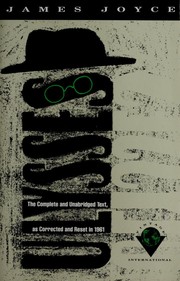
Ulysses by James Joyce
Published: 1922
Banned for: Obscenity, sexual content, blasphemy | Banned in: USA, UK +1 more
The book that broke literature itself—and scandalized the world in the process. Joyce's stream-of-consciousness masterpiece follows Leopold Bloom through a single day in Dublin, but its revolutionary narrative technique and frank depictions of human sexuality, bodily functions, and religious doubt made it the target of obscenity laws worldwide. Banned in the US and UK for over a decade, it sparked landmark court cases that redefined free speech and artistic expression. The novel doesn't just describe human consciousness; it recreates it on the page, complete with every taboo thought and desire. Its banning revealed more about society's fear of psychological truth than about the book's supposed immorality.
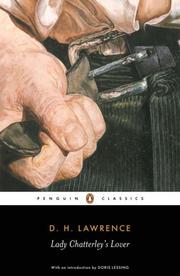
Lady Chatterley's Lover by D.H. Lawrence
Published: 1928
Banned for: Sexual content, explicit language, class themes | Banned in: UK, USA +2 more
The novel that put sex and class warfare on trial. Lawrence's tale of an aristocratic woman's passionate affair with her husband's working-class gamekeeper didn't just break sexual taboos—it shattered class boundaries with explosive force. Banned for thirty years, not just for its explicit sexuality but for suggesting that a lady might find greater fulfillment with a worker than with her noble husband. The book's frank discussions of female desire and its challenge to rigid class structures made it doubly dangerous to the establishment. When Penguin finally published an unexpurgated edition in 1960, the obscenity trial became a cultural watershed, with the prosecution infamously asking if it was a book 'you would wish your wife or servants to read.'
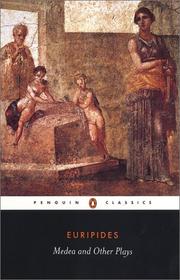
The Decameron by Giovanni Boccaccio
Published: 1353
Banned for: Sexual content, criticism of clergy | Banned in: Australia, USA
Written during the Black Death, this collection of tales was so scandalous that it's been banned for nearly 700 years. Boccaccio's characters don't just tell stories—they expose the hypocrisy of medieval society with gleeful abandon. Priests seduce nuns, nobles act like fools, and clever women outsmart everyone. The Church banned it not just for its sexual content, but for its devastating satire of corrupt clergy who preached virtue while practicing vice. Each tale peels back the moral pretenses of its era, revealing human nature in all its messy, contradictory glory. The fact that a 14th-century book still makes authorities nervous proves that some truths are timeless.

The Bible by Various
Published: Various
Banned for: Religious content, political implications | Banned in: Soviet Union, China +1 more
The ultimate irony: the world's most beloved book is also among the most banned. Communist governments from the Soviet Union to modern China have suppressed the Bible not because they feared its religious message, but because they understood its revolutionary power. This collection of ancient texts has toppled empires, inspired revolutions, and challenged every form of earthly authority for over two millennia. Its message that all humans are created equal and accountable to a higher power than government makes it inherently subversive to totalitarian regimes. When dictators ban the Bible, they're not attacking religion—they're defending their monopoly on truth.

The Satanic Verses by Salman Rushdie
Published: 1988
Banned for: Blasphemy against Islam, religious offense | Banned in: Iran, Pakistan +2 more
The novel that made a writer public enemy number one and proved that words still have the power to shake the world. Rushdie's magical realist masterpiece didn't just offend—it forced a global reckoning between artistic freedom and religious sensitivity. The Ayatollah Khomeini's fatwa sentenced the author to death, bookstores were bombed, and translators were murdered, all for a work of fiction that dared to reimagine sacred narratives. Banned in over a dozen countries, it sparked the most intense literary controversy of the modern era. The book's power lies not in its supposed blasphemy, but in its refusal to treat any idea—even sacred ones—as beyond questioning.

The Gulag Archipelago by Aleksandr Solzhenitsyn
Published: 1973
Banned for: Exposing Soviet prison system, anti-communist | Banned in: Soviet Union, Eastern Bloc
The book that brought down an empire by telling the truth. Solzhenitsyn's devastating exposé of Soviet labor camps didn't just document atrocities—it shattered the illusion that communist brutality was aberrant rather than systematic. Based on the testimonies of 227 fellow prisoners, this masterwork revealed how the USSR transformed an entire nation into a prison. The KGB tried to suppress it, but once published in the West, it became an intellectual nuclear bomb that exploded the moral legitimacy of Soviet communism. Every page drips with the blood of the innocent, making it impossible to maintain romantic illusions about revolutionary violence.
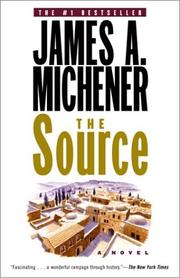
Doctor Zhivago by Boris Pasternak
Published: 1957
Banned for: Anti-Soviet themes, political criticism | Banned in: Soviet Union
A love story so dangerous that the CIA used it as a weapon in the Cold War. Pasternak's epic novel about the Russian Revolution doesn't just chronicle the end of the old world—it mourns the death of Russian soul itself. The Soviet state banned it because it portrayed the Revolution not as liberation, but as catastrophe, showing how political fanaticism destroys everything beautiful and human. The CIA secretly published it and smuggled copies into the USSR, understanding that this poetic indictment of revolutionary violence was more subversive than any spy thriller. When the author won the Nobel Prize, the Soviets forced him to refuse it, proving that poetry can be as threatening as armies.

One Day in the Life of Ivan Denisovich by Aleksandr Solzhenitsyn
Published: 1962
Banned for: Exposing Soviet labor camps | Banned in: Soviet Union
A single day that exposed decades of lies. Solzhenitsyn's deceptively simple story follows one prisoner through one brutal day in a Soviet labor camp, but its understated horror revealed the systematic cruelty of the entire gulag system. Published during Khrushchev's brief thaw, it was soon banned when authorities realized its implications. The novel doesn't preach or theorize—it simply shows how totalitarian systems reduce human beings to numbers, stripping away dignity one humiliation at a time. Its power lies in its restraint: by showing the 'ordinary' horror of camp life, it made readers understand that such evil was not exceptional but institutional.
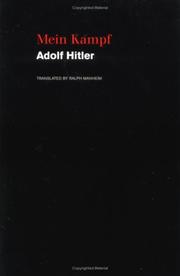
Mein Kampf by Adolf Hitler
Published: 1925
Banned for: Nazi ideology, hate speech, historical sensitivity | Banned in: Germany, Austria +2 more
The most dangerous book in history—dangerous not for its literary merit, but for proving how banal evil can sound when dressed in political rhetoric. Hitler's rambling manifesto blueprinted the Holocaust and World War II, yet its prohibition in many countries raises unsettling questions about the relationship between censorship and education. Should we ban evil ideas or study them to recognize their warning signs? This hate-filled screed reveals how racial prejudice, economic resentment, and nationalist fervor can be weaponized into genocide. Its continued banning may actually serve Hitler's legacy by keeping people ignorant of how fascism seduces ordinary citizens with simple answers to complex problems.

The Anarchist Cookbook by William Powell
Published: 1971
Banned for: Instructions for explosives, drug manufacture | Banned in: Australia, UK
The book that taught a generation how to make bombs—and why that terrifies authorities more than any political theory. Powell's notorious manual combines radical political philosophy with practical instructions for violence, creating a dangerous hybrid that governments worldwide have tried to suppress. But banning it only proves its central thesis: that states maintain power through violence and fear losing their monopoly on both. Written by a teenage anarchist in 1971, it captures the rage of a generation that saw through the hypocrisy of American democracy. Its recipes for chaos may be crude, but its analysis of state power remains disturbingly sharp.

American Psycho by Bret Easton Ellis
Published: 1991
Banned for: Extreme violence, graphic content | Banned in: Australia, Germany
A horror novel masquerading as social satire—or perhaps the other way around. Ellis's brutal masterpiece follows Patrick Bateman, a Wall Street executive who's also a serial killer, through the vapid excess of 1980s Manhattan. Banned in several countries for its graphic violence, the novel was actually exposing the moral vacancy of unchecked capitalism. Bateman's murders are no more soulless than his obsession with brand names and stock prices. The book forces readers to confront an uncomfortable question: in a society that worships wealth above humanity, what's the real difference between literal and metaphorical psychopathy? Its banning reveals our discomfort with mirrors that reflect too clearly.
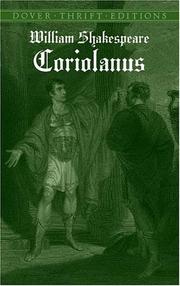
Areopagitica by John Milton
Published: 1644
Banned for: Advocating freedom of press, political reform | Banned in: England (historical)
The founding document of free speech that was banned for being too free. Milton's passionate argument against pre-publication censorship was written in 1644, when the very idea that books shouldn't require government approval was revolutionary. His simple but radical thesis—that truth emerges through open debate rather than official decree—threatened the foundation of authoritarian control. The pamphlet argued that licensing books was like 'the exploit of a fool attempting to license cacklers.' Every subsequent fight for press freedom traces back to Milton's core insight: that societies grow strong through the collision of ideas, not their suppression.
Përbindëshi (The Monster) by Ismail Kadare
Published: 1965
Banned for: Political criticism of communist regime | Banned in: Albania
An Albanian novel that dared to call totalitarianism by its true name. Kadare's allegorical masterpiece used the metaphor of a ancient monster to describe the modern horror of communist dictatorship, showing how Enver Hoxha's regime consumed its own people. Banned immediately upon publication, it proved that even in the most isolated Stalinist state, the human spirit could find ways to speak truth to power. The 'monster' isn't supernatural—it's the system that turns neighbors into informants and transforms a proud nation into a prison. Kadare's genius lies in using ancient Albanian folklore to expose modern tyranny, proving that the oldest stories often contain the newest truths.

Persepolis by Marjane Satrapi
Published: 2000
Banned for: Political content, cultural criticism | Banned in: Iran, Various US schools
A graphic memoir that makes revolution personal—and therefore dangerous. Satrapi's black-and-white illustrations chronicle her childhood during Iran's Islamic Revolution, showing how political upheaval shatters individual lives. Banned in Iran and challenged in American schools, it commits the unforgivable sin of humanizing 'the enemy.' Through a child's eyes, we see how theocracy suffocates freedom, how war traumatizes the innocent, and how families are torn apart by ideology. The Iranian regime banned it for showing their revolution's human cost, while American schools challenged it for depicting a complex Middle East that doesn't fit convenient stereotypes. Its simple drawings deliver complex truths about the price of political extremism.

The Kite Runner by Khaled Hosseini
Published: 2003
Banned for: Cultural sensitivity, graphic content | Banned in: Afghanistan, Various US schools
A novel about friendship and redemption that the Taliban couldn't silence. Hosseini's debut pierces through political rhetoric to show Afghanistan's human heart, making it dangerous to anyone who profits from othering Afghans. The book's frank depiction of sexual abuse, ethnic tension, and religious extremism made it controversial in both Afghanistan and American schools—proving that authentic voices threaten simplified narratives. When the Taliban banned it, they weren't just suppressing a book; they were trying to erase Afghanistan's cultural complexity. The novel's power lies in its refusal to present any culture as monolithic, instead showing how individual relationships transcend political divisions.
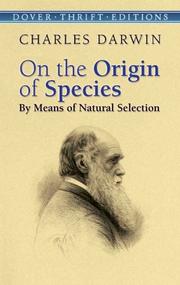
On the Origin of Species by Charles Darwin
Published: 1859
Banned for: Contradicting religious beliefs about creation | Banned in: Various religious communities, Some US schools
The book that dethroned humanity from the center of creation—and made enemies of everyone who liked it there. Darwin's meticulous scientific argument for evolution by natural selection didn't just challenge religious doctrine; it revolutionized our understanding of life itself. Banned and burned by religious authorities worldwide, it forced humanity to confront an uncomfortable truth: we're not specially created beings but evolved animals. The book's careful, methodical presentation of evidence makes it even more threatening to those who prefer faith-based certainties. Every attempt to ban it from schools proves Darwin's deeper point: that some truths are so powerful they can't be suppressed, only delayed.

The Communist Manifesto by Karl Marx and Friedrich Engels
Published: 1848
Banned for: Communist ideology, political revolution | Banned in: USA (historically), Various capitalist countries
A 23-page pamphlet that terrified the ruling classes of the world. Marx and Engels' call for workers to unite against capitalist oppression may be the most influential political document ever written, inspiring revolutions from Russia to China to Cuba. Banned by governments across the political spectrum—from Nazi Germany to McCarthyist America—it poses the fundamental question that makes all authorities nervous: why should the many serve the few? Its analysis of capitalism's internal contradictions feels prophetic in an era of extreme inequality. The manifesto doesn't just critique economic systems; it exposes the class warfare that the wealthy prefer to keep hidden.

The 120 Days of Sodom by Marquis de Sade
Published: 1785
Banned for: Extreme sexual content, violence, obscenity | Banned in: Australia, UK +1 more
An extreme work of erotic literature depicting sexual violence.
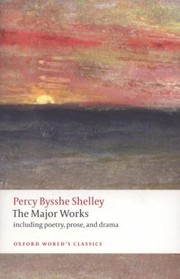
Fanny Hill by John Cleland
Published: 1748
Banned for: Sexual content, prostitution themes | Banned in: UK, USA +1 more
An 18th-century erotic novel about a young woman's sexual awakening.

Tropic of Cancer by Henry Miller
Published: 1934
Banned for: Sexual content, explicit language, obscenity | Banned in: USA, UK +1 more
A semi-autobiographical novel about an American writer in Paris.
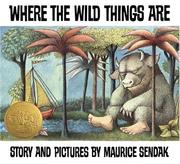
Where the Wild Things Are by Maurice Sendak
Published: 1963
Banned for: Encouraging disobedience, dark themes | Banned in: Various US schools
A children's book about a boy's journey to an island of wild creatures.
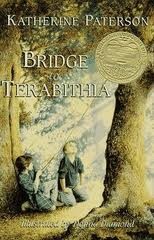
Bridge to Terabithia by Katherine Paterson
Published: 1977
Banned for: Death themes, religious content | Banned in: Various US schools
A children's novel about friendship and dealing with loss.

Harry Potter and the Sorcerer's Stone by J.K. Rowling
Published: 1997
Banned for: Witchcraft, magic, anti-religious themes | Banned in: Various religious communities, Some US schools
A fantasy series about a young wizard's adventures.

All Quiet on the Western Front by Erich Maria Remarque
Published: 1928
Banned for: Anti-war sentiment, depicting horrors of WWI | Banned in: Nazi Germany, Various countries
A powerful anti-war novel about German soldiers in World War I.
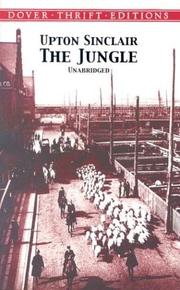
The Jungle by Upton Sinclair
Published: 1906
Banned for: Exposing meat industry, promoting socialism | Banned in: Various US states, Nazi Germany
A novel exposing the harsh conditions of the US meat-packing industry.

Naked Lunch by William S. Burroughs
Published: 1959
Banned for: Drug use, sexual content, obscenity | Banned in: UK, Australia +1 more
An experimental novel depicting drug addiction and withdrawal.

The Grapes of Wrath by John Steinbeck
Published: 1939
Banned for: Political content, criticism of capitalism | Banned in: Various US states, USSR
A novel about the Great Depression and migrant workers.
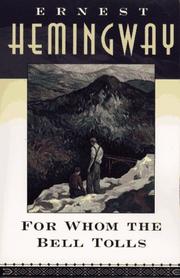
For Whom the Bell Tolls by Ernest Hemingway
Published: 1940
Banned for: Political content about Spanish Civil War | Banned in: Spain, Various countries
A novel set during the Spanish Civil War.
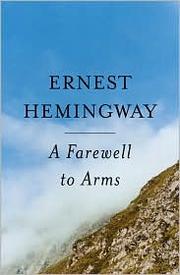
A Farewell to Arms by Ernest Hemingway
Published: 1929
Banned for: Anti-war sentiment, sexual content | Banned in: Italy, Various countries
A novel about an American ambulance driver in World War I.

Slaughterhouse-Five by Kurt Vonnegut
Published: 1969
Banned for: Anti-war themes, language, irreverent tone | Banned in: Various US schools
A satirical novel about the bombing of Dresden in World War II.
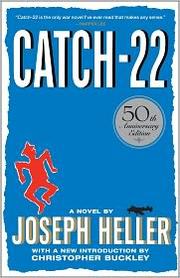
Catch-22 by Joseph Heller
Published: 1961
Banned for: Anti-war sentiment, criticism of military | Banned in: Various US schools
A satirical novel about the absurdity of war and military bureaucracy.

Of Mice and Men by John Steinbeck
Published: 1937
Banned for: Racial slurs, ableist language, depictions of Black characters | Banned in: Various US schools
A novella about two displaced migrant ranch workers during the Great Depression.

The Call of the Wild by Jack London
Published: 1903
Banned for: Violence, social Darwinism themes | Banned in: Nazi Germany, Yugoslavia
A novel about a domesticated dog's return to the wild.

The Adventures of Huckleberry Finn by Mark Twain
Published: 1884
Banned for: Racial slurs, challenging social norms | Banned in: Various US schools
A novel about a boy's journey down the Mississippi River with a runaway slave.
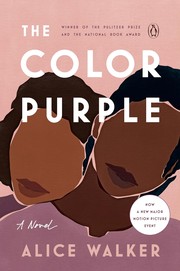
The Color Purple by Alice Walker
Published: 1982
Banned for: Sexual violence, profanity, religious themes | Banned in: Various US schools
A novel about an African American woman's struggle for independence.

Beloved by Toni Morrison
Published: 1987
Banned for: Graphic violence, slavery themes, disturbing content | Banned in: Various US schools
A novel about the psychological impact of slavery on a former slave.

I Know Why the Caged Bird Sings by Maya Angelou
Published: 1969
Banned for: Sexual abuse themes, racism, language | Banned in: Various US schools
An autobiographical work about overcoming racism and trauma.

The Absolutely True Diary of a Part-Time Indian by Sherman Alexie
Published: 2007
Banned for: Language, sexual content, cultural sensitivity | Banned in: Various US schools
A young adult novel about a Native American teenager's experiences.

Thirteen Reasons Why by Jay Asher
Published: 2007
Banned for: Suicide themes, potential to inspire copycat behavior | Banned in: Various US schools
A young adult novel about a teenager's suicide and the reasons behind it.

The Hate U Give by Angie Thomas
Published: 2017
Banned for: Police brutality themes, political content, language | Banned in: Various US schools
A young adult novel about a teenager who witnesses police shooting.
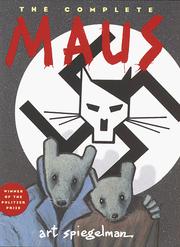
Maus by Art Spiegelman
Published: 1986
Banned for: Holocaust themes, graphic content, disturbing imagery | Banned in: Various US schools, Russia
A graphic novel depicting the Holocaust through the metaphor of mice and cats.

Gender Queer by Maia Kobabe
Published: 2019
Banned for: LGBTQ+ themes, gender identity, sexual content | Banned in: Various US schools
A memoir about gender identity and sexual orientation.

The Bluest Eye by Toni Morrison
Published: 1970
Banned for: Sexual violence, racism, disturbing content | Banned in: Various US schools
A novel about a young Black girl who wishes for blue eyes.

Looking for Alaska by John Green
Published: 2005
Banned for: Sexual content, drinking, smoking, offensive language | Banned in: Various US schools
A young adult novel about teenagers at a boarding school.

The Giver by Lois Lowry
Published: 1993
Banned for: Dystopian themes, euthanasia, suicide | Banned in: Various US schools
A dystopian novel about a boy who discovers the truth about his society.

Captain Underpants by Dav Pilkey
Published: 1997
Banned for: Encouraging disrespect for authority, potty humor | Banned in: Various US schools
A children's series about two boys who create a superhero.
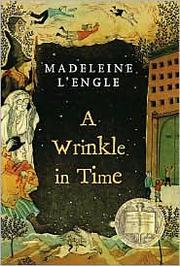
A Wrinkle in Time by Madeleine L'Engle
Published: 1962
Banned for: Religious themes, occult elements, challenging traditional beliefs | Banned in: Various US schools
A science fantasy novel about a girl traveling through space and time.

The Witches by Roald Dahl
Published: 1983
Banned for: Witchcraft themes, scary content for children | Banned in: Various religious communities
A children's novel about a boy who encounters real witches.

James and the Giant Peach by Roald Dahl
Published: 1961
Banned for: Dark themes, references to tobacco and alcohol | Banned in: Various US schools
A children's novel about a boy's magical journey inside a giant peach.

Are You There God? It's Me, Margaret by Judy Blume
Published: 1970
Banned for: Puberty themes, religious questioning, sexual development | Banned in: Various US schools
A coming-of-age novel about a girl navigating puberty and religion.

Forever by Judy Blume
Published: 1975
Banned for: Sexual content, teenage sexuality | Banned in: Various US schools
A young adult novel about first love and teenage sexuality.
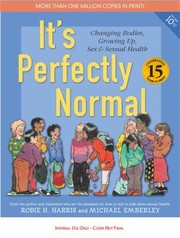
It's Perfectly Normal by Robie Harris
Published: 1994
Banned for: Sex education content, illustrations of human anatomy | Banned in: Various US schools
A children's book about changing bodies, growing up, sex, and sexual health.

The Perks of Being a Wallflower by Stephen Chbosky
Published: 1999
Banned for: Drug use, sexual content, homosexuality, suicide | Banned in: Various US schools
A coming-of-age novel about a sensitive teenager navigating high school.

Speak by Laurie Halse Anderson
Published: 1999
Banned for: Sexual assault themes, depression, potentially triggering content | Banned in: Various US schools
A young adult novel about a girl who stops speaking after being sexually assaulted.

The Chocolate War by Robert Cormier
Published: 1974
Banned for: Violence, anti-authority themes, disturbing content | Banned in: Various US schools
A young adult novel about a student who refuses to participate in a school chocolate sale.

Go Ask Alice by Anonymous
Published: 1971
Banned for: Drug use, sexual content, graphic descriptions | Banned in: Various US schools
A controversial diary-style novel about teenage drug addiction.

The Diary of a Young Girl by Anne Frank
Published: 1947
Banned for: Holocaust content, Jewish themes, sexual development | Banned in: Various schools, Lebanon
The diary of a Jewish teenager hiding during the Holocaust.

Night by Elie Wiesel
Published: 1958
Banned for: Holocaust content, graphic descriptions of violence | Banned in: Various schools
A memoir of the author's experiences in Nazi concentration camps.

The Things They Carried by Tim O'Brien
Published: 1990
Banned for: War violence, graphic content, language | Banned in: Various US schools
A collection of linked short stories about the Vietnam War.
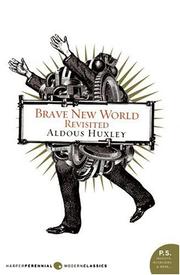
Brave New World Revisited by Aldous Huxley
Published: 1958
Banned for: Political criticism, challenging social norms | Banned in: Various countries
A non-fiction follow-up to Brave New World examining modern society.
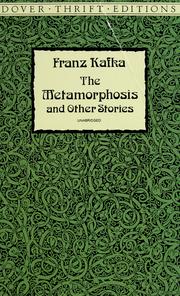
The Metamorphosis by Franz Kafka
Published: 1915
Banned for: Disturbing content, existential themes, alienation | Banned in: Nazi Germany, Various countries
A novella about a man who transforms into a giant insect.

The Trial by Franz Kafka
Published: 1925
Banned for: Criticism of legal systems, bureaucracy, authority | Banned in: Nazi Germany, Eastern Bloc countries
A novel about a man arrested and prosecuted by an inaccessible authority.

The Picture of Dorian Gray by Oscar Wilde
Published: 1890
Banned for: Homosexual themes, hedonism, moral corruption | Banned in: Various countries historically
A novel about a man who remains young while his portrait ages.
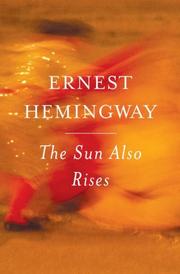
The Sun Also Rises by Ernest Hemingway
Published: 1926
Banned for: Sexual content, drinking, anti-religious themes | Banned in: Various countries
A novel about the 'Lost Generation' after World War I.
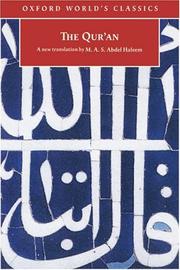
The Koran (Quran) by Prophet Muhammad
Published: 7th century
Banned for: Religious content, political implications in secular states | Banned in: Various secular states historically, Some periods in China
The holy book of Islam, banned in various secular or anti-Islamic contexts.

Madame Bovary by Gustave Flaubert
Published: 1856
Banned for: Adultery themes, challenging marriage norms, obscenity | Banned in: France (initially), Various countries
A novel about a bored provincial housewife who seeks escape through adultery.

The Tin Drum by Günter Grass
Published: 1959
Banned for: Sexual content, political criticism, disturbing imagery | Banned in: Various countries
A novel about a boy who refuses to grow up during Nazi Germany.

Candide by Voltaire
Published: 1759
Banned for: Religious criticism, political satire, challenging optimism | Banned in: France, Various religious states
A satirical novella that criticizes optimism and religious institutions.

The Prince by Niccolò Machiavelli
Published: 1532
Banned for: Political manipulation, challenging divine right of kings | Banned in: Papal States, Various monarchies
A political treatise on gaining and maintaining political power.
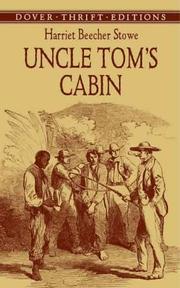
Uncle Tom's Cabin by Harriet Beecher Stowe
Published: 1852
Banned for: Anti-slavery themes, racial content | Banned in: Confederate States, Various pro-slavery regions
An anti-slavery novel that depicted the brutal reality of slavery in America.
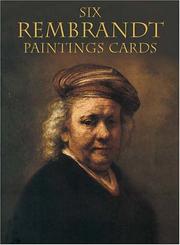
The Wealth of Nations by Adam Smith
Published: 1776
Banned for: Economic theories challenging feudalism and mercantilism | Banned in: Various autocratic states historically
A foundational work of modern economics promoting free markets.

Das Kapital by Karl Marx
Published: 1867
Banned for: Communist economic theory, criticism of capitalism | Banned in: Various capitalist countries, Nazi Germany
Marx's critical analysis of political economy and capitalism.
The Protocols of the Elders of Zion by Unknown (fabricated text)
Published: 1903
Banned for: Anti-Semitic fabrication, hate speech, promoting conspiracy theories | Banned in: Germany, Various countries (banned as hate speech)
A fabricated antisemitic text that has been thoroughly debunked.

A Clockwork Orange by Anthony Burgess
Published: 1962
Banned for: Extreme violence, sexual assault, disturbing content | Banned in: Various countries
A dystopian novel about a violent young man and behavioral conditioning.

One Flew Over the Cuckoo's Nest by Ken Kesey
Published: 1962
Banned for: Anti-authority themes, mental health treatment criticism | Banned in: Various US schools
A novel about rebellion against institutional authority in a mental hospital.

In the Heat of the Night by John Ball
Published: 1965
Banned for: Racial themes, challenging Southern racism | Banned in: Various US schools
A crime novel dealing with racism in the American South.

The Autobiography of Malcolm X by Malcolm X and Alex Haley
Published: 1965
Banned for: Black nationalism, criticism of white supremacy | Banned in: Various US schools
The life story of the influential civil rights leader Malcolm X.
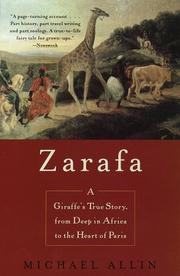
Soul on Ice by Eldridge Cleaver
Published: 1968
Banned for: Black Power themes, criticism of racism, violent rhetoric | Banned in: Various US schools
A collection of essays on racism and Black Power from prison.

Black Boy by Richard Wright
Published: 1945
Banned for: Racial themes, criticism of Southern racism, harsh language | Banned in: Various US schools
An autobiography about growing up Black in the Jim Crow South.
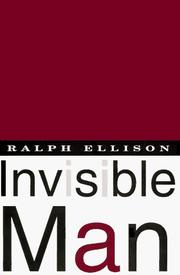
Invisible Man by Ralph Ellison
Published: 1952
Banned for: Racial themes, social criticism, complex depictions of racism | Banned in: Various US schools
A novel about a Black man's experience of social invisibility.
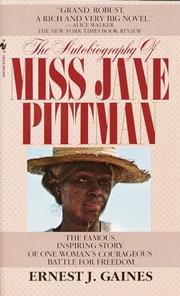
The Autobiography of Miss Jane Pittman by Ernest J. Gaines
Published: 1971
Banned for: Racial themes, slavery and Civil Rights content | Banned in: Various US schools
A novel tracing Black American history from slavery to the Civil Rights era.

Native Son by Richard Wright
Published: 1940
Banned for: Violence, racial themes, challenging white perceptions | Banned in: Various US schools
A novel about a young Black man in 1930s Chicago.

The Joy Luck Club by Amy Tan
Published: 1989
Banned for: Cultural themes, family dysfunction, sexual content | Banned in: Various US schools
A novel about Chinese-American women and their relationships.

Bless Me, Ultima by Rudolfo Anaya
Published: 1972
Banned for: Religious themes, witchcraft, cultural content | Banned in: Various US schools
A coming-of-age novel about a Chicano boy in New Mexico.

The House on Mango Street by Sandra Cisneros
Published: 1984
Banned for: Sexual content, poverty themes, cultural identity | Banned in: Various US schools
A coming-of-age novel about a Latina girl in Chicago.
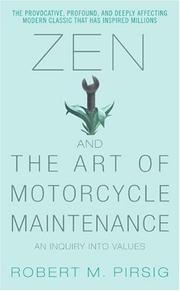
Zen and the Art of Motorcycle Maintenance by Robert M. Pirsig
Published: 1974
Banned for: Philosophical content, challenging traditional thinking | Banned in: Various institutions
A philosophical exploration of quality, values, and the meaning of life.
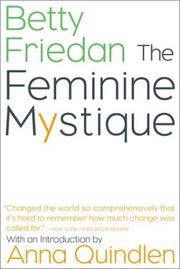
The Feminine Mystique by Betty Friedan
Published: 1963
Banned for: Feminist themes, challenging traditional gender roles | Banned in: Various conservative communities
A feminist text that sparked the second wave of feminism.
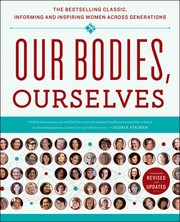
Our Bodies, Ourselves by Boston Women's Health Book Collective
Published: 1971
Banned for: Women's health information, sexuality, reproductive rights | Banned in: Various US schools, Conservative communities
A book about women's health and sexuality from a feminist perspective.
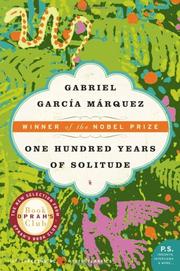
One Hundred Years of Solitude by Gabriel García Márquez
Published: 1967
Banned for: Political themes, magical realism challenging reality | Banned in: Various Latin American dictatorships
A magical realist novel about the Buendía family over seven generations.
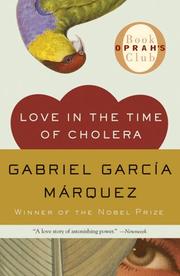
Love in the Time of Cholera by Gabriel García Márquez
Published: 1985
Banned for: Sexual content, challenging social norms | Banned in: Various conservative countries
A love story spanning over fifty years set in the Caribbean.
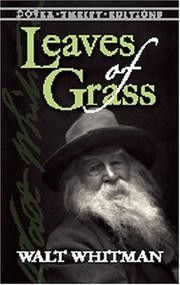
Leaves of Grass by Walt Whitman
Published: 1855
Banned for: Sexual content, homosexual themes, challenging religious views | Banned in: Various US states, UK
A collection of poetry celebrating the human body and sexuality.
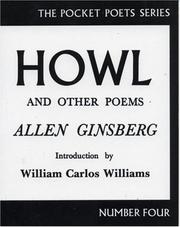
Howl by Allen Ginsberg
Published: 1956
Banned for: Sexual content, drug use, anti-establishment themes | Banned in: Various US states
A long poem criticizing American society and celebrating non-conformity.

The God Delusion by Richard Dawkins
Published: 2006
Banned for: Atheist themes, criticism of religion | Banned in: Various religious communities, Some schools
An argument against the existence of God and criticism of religious belief.

Letter from Birmingham Jail by Martin Luther King Jr.
Published: 1963
Banned for: Civil rights activism, challenging segregation | Banned in: Various US schools in conservative areas
A letter defending nonviolent resistance to racism and segregation.

The Giver by Lois Lowry
Published: 1993
Banned for: Dystopian themes, euthanasia, suicide | Banned in: Various US schools
A dystopian novel about a boy who discovers the truth about his society.

New Kid by Jerry Craft
Published: 2019
Banned for: Racial themes, discussions of racism in schools | Banned in: Various US schools
A graphic novel about a Black student navigating a predominantly white school.

Lawn Boy by Jonathan Evison
Published: 2018
Banned for: Sexual content, LGBTQ+ themes, explicit language | Banned in: Various US schools
A coming-of-age novel about a Mexican American landscaper finding his identity.

The 1619 Project by Nikole Hannah-Jones
Published: 2021
Banned for: Reframing American history, slavery and racism focus | Banned in: Various US schools
A project reframing American history around the consequences of slavery.

White Fragility by Robin DiAngelo
Published: 2018
Banned for: Discussions of racism, white privilege, critical race theory | Banned in: Various US schools and institutions
An examination of white fragility and racial dynamics in America.

Between the World and Me by Ta-Nehisi Coates
Published: 2015
Banned for: Racial themes, criticism of American racial history | Banned in: Various US schools
A letter to the author's son about being Black in America.
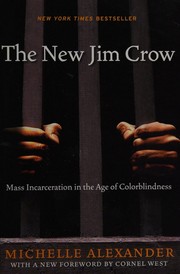
The New Jim Crow by Michelle Alexander
Published: 2010
Banned for: Criticism of criminal justice system, racial analysis | Banned in: Various US institutions
An analysis of how mass incarceration perpetuates racial inequality.

Stamped: Racism, Antiracism, and You by Jason Reynolds and Ibram X. Kendi
Published: 2020
Banned for: Discussions of racism and antiracism for young readers | Banned in: Various US schools
A young adult adaptation examining the history of racist ideas in America.

King and the Dragonflies by Kacen Callender
Published: 2020
Banned for: LGBTQ+ themes, gender identity in children's literature | Banned in: Various US schools
A middle-grade novel about a boy dealing with loss and questioning his identity.

Red: A Crayon's Story by Michael Hall
Published: 2015
Banned for: LGBTQ+ themes, gender identity metaphor | Banned in: Various US schools
A picture book about a crayon labeled red who is actually blue.

Ghost Boys by Jewell Parker Rhodes
Published: 2018
Banned for: Police brutality themes, racial violence | Banned in: Various US schools
A novel about a 12-year-old Black boy killed by police and his ghost's perspective.

The Handmaid's Tale: The Graphic Novel by Margaret Atwood and Renée Nault
Published: 2019
Banned for: Political themes, reproductive rights, dystopian content | Banned in: Various US schools
A graphic novel adaptation of Atwood's feminist dystopia.

This Book Is Gay by Juno Dawson
Published: 2014
Banned for: LGBTQ+ education, sexual content, gender identity | Banned in: Various US schools
A guide to sexual orientation and gender identity for young people.
Defend Your Right to Read
Every purchase supports intellectual freedom and ensures these important stories remain accessible. From classic literature to modern controversies, these books shaped our world.
Start Your Collection